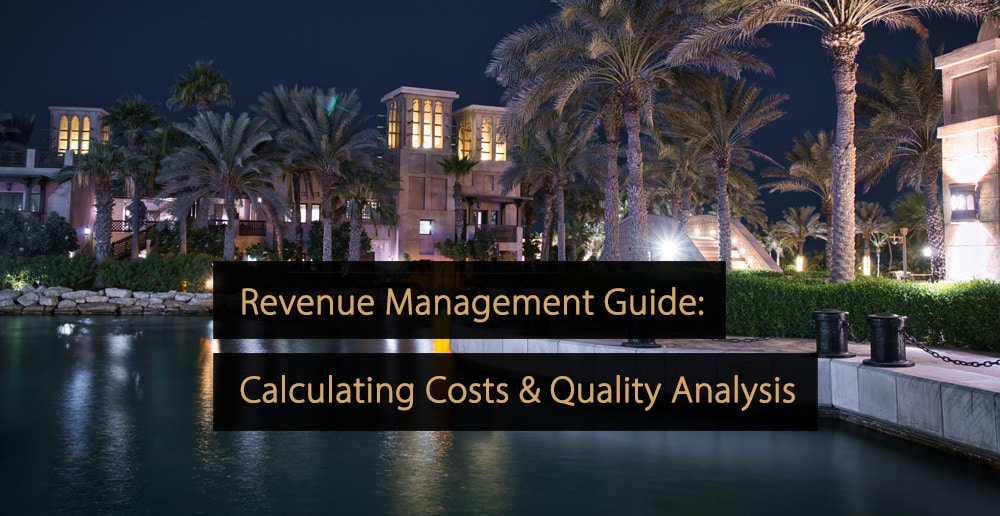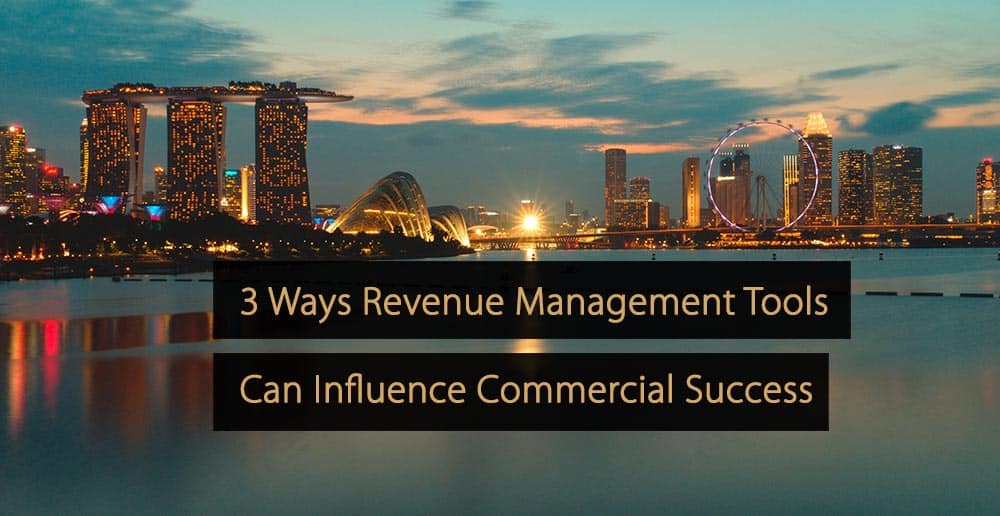Question for Our Revenue Management Expert Panel:
What are the recommended revenue management strategies for new hotels / resorts? How do they differ to those used by established properties?
Industry Expert Panel
Our Industry Expert Panel exists out of professionals within the hospitality & travel Industry. They have comprehensive and detailed knowledge, experience in practice or management and are forward-thinking. They are answering questions about the state of the industry. They share their insights on topics like revenue management, marketing, operations, technology and discuss the latest trends.
Our Revenue Management Expert Panel
- Dr. Betsy Stringam-Bender – Professor of Hotels & Resorts, New Mexico State University
- Ricardo Sereno – Revenue Manager, Altis Hotels
- Dermot Herlihy – Owner, Dynamic Hospitality Consulting
- Pablo Torres – Director Of Sales Marketing, Alannia Resorts
- Diego Fernández Pérez De Ponga – Director of Revenue Management, Palladium Hotel Group
- Daniel Feitosa – Revenue Management Specialist
- Silvia Cantarella – Revenue Management Consultant, Revenue Acrobats
- Fabian Bartnick – Founder, Infinito
- Massimiliano Terzulli – Revenue Management Consultant, Franco Grasso Revenue Team
- Mariska van Heemskerk – Owner, Revenue Management Works
- Daphne Beers – Owner, Your-Q Hospitality Academy
- Annemarie Gubanski – Founder and CEO, Taktikon
- Ask Our Panel a Question
- Join Our Expert Panel
“When opening a new hotel or resort it is imperative that you have access to analytics from other properties in the area and other hotels that may be part of the competitive set. These can be used as a starting point for revenue strategies. New hotels, however, may have an increased volume upon opening, as consumers often want to try or experience the newest hotel in town.
One key difference in revenue strategies for a new hotel is increased analysis and flexibility. Because the demand patterns are not yet established, it is important to review reservation and market demand more often, than for an established hotel. Similarly, new hotels should set more flags or alerts for fluctuating demand, to alert management that the demand pattern is not as anticipated, and rate and inventory decisions may need to be re-evaluated.”
“First of all, I believe that the strategy is always different and must be adapted to each property and business model.
The main differences that we find in Strategic Revenue Management decisions are in anticipation of implementing the strategies we need to make:
If you are a beachfront hotel still dependent on Fixed prices from Contracted Tour Operators, you will need to start thinking about your strategy at least 1 year before it starts. Nowadays major Tour Operators have already contracted for 2023 and we are already getting the first requests for rates for 2024.
If you are in a destination with a lot of Tour Series, you have to contract 2 years in advance, and it’s the same with Guaranteed allotments. Today most stable Tour Series are already contracted for the 2023/2024 season and we are already establishing the strategy for 2025.
Even if you live in a “last minute” destination that lives 100% on direct business you still have some fixed prices and special events that will force you to start thinking about your business in advance. In Lisbon you always have special events already scheduled for 2023 and 2024 and you have to contract corporate rates yearly.
Ultimately, your Revenue Strategy should be always the same in any kind of property, new or established.
Every year, before the budget, you should analyze the following elements: National and International markets, Product review, Comp set redefinition, Pricing Structure and Special Events and ultimately “the budget”. This should be made for the next year (exhaustive) and for the next 3 years (in a lighter way, only reviewing the requests received so far, the business on the books and Special Events). With that strategic guideline, all your operational decisions are easier.”
“When it comes to new properties and what revenue strategies to implement, it comes down to using the tools at hand such as STR, HotStats and talking with the other system partners such as GDS providers, OTA Insight etc.
There really is no difference in how these are used when it comes to an established property; they help embed a successful operation and the data sharing continues. It is how to use this data pre-opening to maximize post-opening. For the development of the revenue strategy, it is crucial that there is cohesive planning with Sales and Marketing in pre-opening. It is often built around the marketing strategy first, i.e., what does the property stand for? The “how do we get the guest” is secondary, if not tertiary.
The key recommendation for revenue strategy development needs to come a lot earlier than it does, with room types. How many categories, how many within a category, etc? How often do we see hotels change room types after a few years of operation? This can be reduced if greater time is spent on this development.”
“Besides being new, we also need to know whether it is part of a well-known brand, or a completely new and independent property. For the former, creating buzz and attracting customers is much easier, as the allure of the brand precedes them. In the case of the latter, the investment in campaigns, PR, offers, etc., will have to be higher to gain that recognition. Social media influencers can generate great ROI with their campaigns, at a fraction of the cost that an offline media campaign would cost you.”
“The main differences between a new and an already-established property are:
- Lack of historical data
- You do not know the price elasticity of your product
Taking these two differences into account, you need to go to the market and try to steal clients from other companies – so therefore it’s important to ask yourself where you want to be positioned in the market, while remembering these strategies:
- Premium Pricing – Try to be the most expensive one
- Competitive Pricing – Try to be around the middle of the market
- Penetration Pricing – You lower your price in the first moments of launching the product
Of course, the choice depends on your strategy.”
“You need to have steps. A Business Plan is not just something pretty to do and show to managers and investors. A hotel is built to serve a market or achieve a goal. There are often lots of changes between the time the hotel starts to be built and the time it opens. So, doing some sales homework before it opens is crucial:
- Understand the market (what are the OR and ADR of your competitors?)
- Who will be your direct competitors? Visit them and understand their work environment
- A SWOT analysis is always very useful.
- What will the business purpose of your hotel be? Why should a guest choose your new hotel or others?
Also, it’s important to analyze the segments:
- Do you need Groups? Corporate? MICE? Will your hotel need much from OTAs/Tour Operators?
- Who are the main players bringing clients to the region? What are the cities/countries that generate businesses?
Revenue Managers can contribute a lot with these visions and also understand seasonality, calendar dates, events and sources of business.
Creating a wide & open rate and distribution strategy will surely be an advantage. Additionally, by working with Revenue Management, Sales and Marketing, your hotel can profit from strategic Offers and Promotions to help the market know your new property and unique selling points.”
“When launching a new property, an accurate study of the market and a strategic pre-opening plan are necessary to set clear goals and vision: where will you position your property within the competitive set and how will you implement a coherent commercial strategy in support? I believe that when launching a new hotel, the first phase is critical because if you e.g. set the wrong pricing, it will be really hard to adjust it in the future. Pricing is not all but it is one of the pillars and it communicates the value of your property and your positioning.
Having done several new openings, I think that a detailed business plan and market analysis will help to set the right strategy that will cover at least 3 phases: opening, ramp-up, and stabilised. These 3 phases impact the revenue management strategy and are the ones that make a new opening different to an established property that works only in the stabilised phase.”
“Do not do an opening “discount” sale. All you are saying to the market is: “Hey, we are brand new, we are open, but we are not worth the full price.”
Established hotels? You have to give someone a reason to stay with you. Just having a room and a bed is not cutting it anymore – and it hasn’t cut it for years.”
“For an existing property, clearly the strategy takes into account the historical data (whether pre or post-covid) for the processing of prices, and the competitive set generally has a lower weight if the hotel has consolidated its position on the market through years of revenue management, marketing, an excellent brand reputation, a progressive improvement of services and a mix of direct customers (frequent and new) with indirect.
In these cases, often the wisest comparison to make is with oneself, trying to always improve day after day, year after year.
For a new hotel, since there is no historical data available, the history must be built and recorded along the way. In this case, the analysis of the competitive set and the demand on the destination (visits, searches, etc.) takes on a much greater weight for the elaboration of the commercial and pricing strategy.
Even the analysis of destination reports, where available, can help to get an idea of some key parameters such as occupancy, ADR and RevPAR by type of property – but also other parameters such as the most sought-after and offered services, the average customer satisfaction etc. Clearly these are useful elements, especially at the beginning, but once the accommodation facility opens, you have to be very careful to monitor daily how the market perceives the property, if corrections are to be made not only on the pricing policy but also on the management of services, on staff, on operational processes etc., i.e., all those aspects that can affect the reputation and attractiveness of the hotel, and therefore on its visibility and demand.
Generally, in these cases, it is necessary to find at the beginning the right pricing balance that allows you not to be too low but at the same time remain competitive compared to other facilities that are already established in the destination, with a history and a brand reputation to benefit from. It is very important in these cases to manage the inventory at the beginning in a very cautious way, with few rooms available for sale, to monitor the market response and act accordingly.”
“Opening a new hotel is always a challenge, as you need to get to know your market. What kind of guests can you expect, do you have a room-only location, or do you need to sell meeting spaces/weddings/events as well?
Ensure you’ve built a strategy by a minimum of 6 months prior to your opening, and open booking channels on time. Often construction/building is delayed and the opening date gets pushed. But it’s better to open your systems already, for example, for 1 month after the scheduled opening date, so you can start building your online brand than only opening the system at the last minute and losing out on business for a longer period.
Established hotels already have an insight on actual market mix, lead time of guests, length of stay, booking channels, etc. And as a new hotel, you need to almost wait and find out. Ensure you don’t start off with rates that are too low, but also not too high, as even the first rooms you sell are setting an image of your brand. In the month after the hotel opens, you don’t want to increase your rates enormously, but you also don’t want to drop your rates heavily.
Your guests will focus on your review scores, so ensure they are strong from the beginning. Focus also on building a strong team that complements the aspired business mix. Do you have corporate locations? Ensure someone is selling your hotel with the right knowledge in advance, as it can be a challenge to sell a closed hotel. Ensure they have the proper material to give potential clients.”
“The strategy should build, contribute and add to your desired target audience. Traditionally in opening hotels, the first focus is on occupancy. When the occupancy is on market levels (or getting there) then the ADR comes into play. This way of working implies that opening hotels should always compromise on ADR.
However, in my opinion, this is the wrong strategy. Your eventual target audience should always be on the rates you want them to pay.
In an opening strategy, I would instead advise taking on some other target groups temporarily (that you can switch off after) to create base occupancy. Make sure that rates are closed like groups, flash sales, and opening deals.
Putting yourself in the market with a brand-new hotel gives you an advantage over all your competitors and that is something people want to pay for. A new brand, a new experience, a new product, a must-try… It’s up to you how you deliver the message and how bold your strategy can be!”
“This very much depends on the type of hotel or resort. For a new property, it is incredibly important that awareness has been created and that there is a solid digital marketing plan in place. We can get good help from third parties such as OTAs that already have a steady client base of their own. Setting up new hotels and working with the visibility that the OTAs create is always a good help. There are easy tools such as connecting to Google’s Free Booking Links to start off with, but a solid digital marketing plan is crucial.”
Ask a Question & Join Our Expert Panel
Would you like a question to be answered by our Industry Expert Panel? Or would you like to join our community of experts and share your experience, insights, and knowledge with fellow industry professionals? Via the buttons below you can submit a question or submit a request to become part of our expert panel.
More Tips to Grow Your Business
Revfine.com is the leading knowledge platform for the hospitality and travel industry. Professionals use our insights, strategies, and actionable tips to get inspired, optimize revenue, innovate processes, and improve customer experience.Explore expert advice on management, marketing, revenue management, operations, software, and technology in our dedicated Hotel, Hospitality, and Travel & Tourism categories.



















Leave A Comment